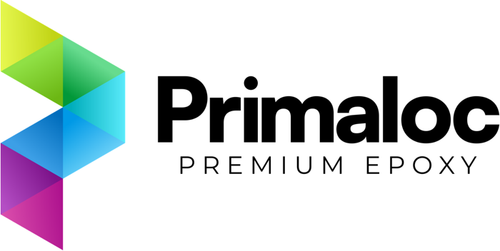Kitchen countertops are considered a centerpiece of a kitchen's design, and many homeowners elect to put extra effort when deciding on a kitchen countertop aesthetic because of how central they are to the room.
When it comes to planning brand new countertops—or renovating an existing set— it can be very useful to consider your options from different angles. Visually, functionally, financially—these are all useful ways to consider your countertop options.
Some countertop materials are visually and functionally remarkable, such as quartz, but they have a heavy price. Other types of countertops like marble and granite may be visually pleasing, but costly and require sealing. Then there are those like wood, whose cost ranges wildly, but which can be cheaper, yet functionally struggle without significant assistance through refinement and/or heavy sealants.
In this article, we'll discuss the benefits of kitchen countertops that have been sealed with high-quality epoxy resin. We'll then showcase some of the kitchen countertop projects that our epoxy users have made.
What Is the Appeal of Having Good Kitchen Countertops?
The appeal of having nice kitchen countertops lies in their combination of aesthetic beauty, functionality, and the value they add to a home. Because countertops are one of the most noticeable features in a kitchen, they often set the tone for the room's overall design.
Kitchen countertops exist in a variety of materials, colors, and finishes, allowing homeowners to express their personal style, such as sleek/modern, warm/traditional, or perhaps somewhere in between. Aesthetically pleasing countertops can change the space into a more inviting and enjoyable area for cooking, dining, and socializing.
From a functional standpoint, high-quality countertops provide a durable, easy-to-clean surface that can withstand the rigors of daily kitchen activities. Good countertops also contribute to the overall hygiene of the kitchen, as materials like non-porous quartz or sealed granite do not harbor bacteria or viruses.
Finally, having a quality set of kitchen countertops can significantly increase the value of a home. They are often a key selling point in real estate transactions, with potential buyers placing a premium on well-maintained and stylish kitchens. In many cases, investing in quality countertops offers a good return on investment, enhancing the marketability and appeal of the property.
For Kitchen Countertops, A Good Sealant Saves the Day
Countertops can be made with many different materials, but without proper protection, many of those materials won't hold up long term and are susceptible to various forms of damage. Thankfully, there's a way to mitigate or prevent entirely these concerns, and that way is through the use of a sealant.
One of the most important aspects of kitchen countertop project planning is choosing a suitable sealant. Sealants are what keep the material safe from stains and moisture, and they provide protections from other types of damage as well, depending on the type of sealant.
What sealant types are good for countertops?
There are quite a few different sealants, each suited for different situations. Here are five of the most commonly used sealants.
- Silicone Sealants - These are great for preventing staining and moisture absorption, especially on edges and porous seams.
- Impregnating Sealers - Often used for stone and similar surfaces, these prevent moisture damage and staining from liquids.
- Epoxy Resin - Epoxy is the do-it-all sealant. It provides a beautiful high-gloss finish and high protection from physical damage and moisture.
- Polyurethane Varnishes - Polyurethane sealants are similar to epoxy, though cheaper and less durable. They feature good scratch resistance and moisture resistance.
- Acrylic Sealant - An acrylic sealant can be used to protect certain surface types against moisture and staining.
These five sealant types are frequently used for various applications—and among them, there is none better than epoxy resin.
Epoxy Resin: A Kitchen Countertop Icon
One of the best possible sealants you can choose for your kitchen countertops is epoxy resin.
Epoxy resin is typically packaged as two separate components. When these components are combined, they begin to cure, hardening into an ultra-strong, crystal-clear protective coating. This coating can then be applied to appropriate material substrates, such as laminate kitchen countertops.
Unlike other sealants, epoxy resin doesn't require occasional resealing. Instead, it has a years-long lifespan. For instance, an epoxy finish made with our Primaloc Epoxy will last about 7 years,at which point it may finally begin to exhibit signs of wear. Even better is that the epoxy can be easily refreshed any time with a light sanding and fresh coating.
New coats of epoxy poured over older coats will mesh seamlessly if handled properly, meaning that your finish can look good as new, years after the original application.
And that brings us to the highlight of this article: DIY epoxy kitchen countertops!
Primaloc Highlights: Epoxy Kitchen Countertops
Take a look at these beautiful countertops created by real users.




Primaloc Epoxy: Premium Epoxy for Premium Results
When it comes to epoxy resin, Primaloc Epoxy gets the job done. Our epoxy resin is premium-grade, with high performance in every category, making it the perfect protective finish for your kitchen countertops.
Epoxy resin can be beautiful, strong, and long-lasting—which is why you shouldn't compromise on quality. With Primaloc Epoxy Resin, you get the ultimate finish in durability and visual appeal.
Protect your surfaces by giving them a rock-solid epoxy finish. Choose strong. Choose reliable. Choose Primaloc.



